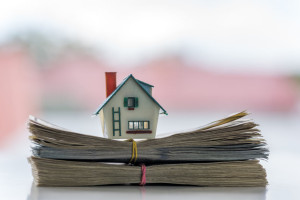Earnest money 101
 Are you getting ready to make an offer on a home? You’ll need to decide how much money you’re going to offer the seller, of course. And you’ll also need to figure out how much to offer in earnest money. The earnest money deposit is an important part of the home buying process. It’s an amount of money that is used to show the sellers that a buyer is serious — or ‘earnest’ — about buying their home. Sellers rarely accept offers without an earnest money deposit.
Are you getting ready to make an offer on a home? You’ll need to decide how much money you’re going to offer the seller, of course. And you’ll also need to figure out how much to offer in earnest money. The earnest money deposit is an important part of the home buying process. It’s an amount of money that is used to show the sellers that a buyer is serious — or ‘earnest’ — about buying their home. Sellers rarely accept offers without an earnest money deposit.
Your real estate agent can help you decide how much earnest money to offer. In some cases, you’ll offer a set amount of money. In other cases, a percentage of the price you’re offering to pay for the home — such as 1% to 2% — is more appropriate. In the most competitive markets, an earnest money deposit of as much as 3% to 4% of the purchase price might be warranted. If you end up purchasing a home, your earnest money is typically held by a title company or the seller’s broker — depending on the state in which the transaction is taking place — and can be applied toward your down payment and closing costs on closing day.
You’ll pay earnest money by cashier’s check, personal check, or wire transfer. Larger earnest money deposits — especially in highly competitive housing markets and in multiple offer situations — can signal to a seller that you’re serious. What happens to that money if the home sale doesn’t go through? A purchase contract should spell out instances in which an earnest money deposit would be refunded, such as if a home inspection finds a costly hidden defect. Before signing a Purchase and Sale Agreement, make sure you have carefully reviewed it and understand how to successfully recover your earnest money if you need to back out of the sale.
At PRMI, we’re big on homebuyer education. We’re here to help answer your questions and help you learn more about the home buying process. Just give us a call: (360) 903-7890.



